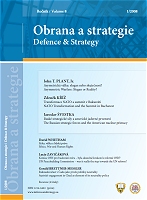Globální nerovnost jako globální bezpečnostní hrozba
Global inequality as a global security threat
Author(s): Miloš BalabánSubject(s): Politics / Political Sciences
Published by: Univerzita obrany
Keywords: Social inequality; poverty; illegal migration; failed cities; European Union; Sub-Saharan Africa; Middle East; development aid; společenská nerovnost; chudoba; nelegální migrace; velkoměsta v úpadku; Evropská unie; Subsaharská Afrika; Blízký východ.
Summary/Abstract: In the first decade of the 21st century global inequality is becoming an ever more serious global security threat. The most telling fact in this respect is the 3 billion people living below the poverty threshold and in absolute poverty. True, by 2015 this number should decline to 2.6 billion, but even so it will still be a very high proportion of the world’s total population. The fact that large areas and regions, mostly of the developing world, are lagging behind in social and economic progress generates not only regional, but potentially also global security instability. Uncontrolled mass migration is a particularly serious threat in this respect. Global inequality can have serious consequences even for the security of the European Union, which is an important destination for migrants especially from Sub-Saharan Africa and potentially also from the Middle East. Social inequality generates even completely new security challenges. One example of this are the “failed cities”, mostly an African, Asian and Latin American phenomenon. In order to reduce global inequality as a global security challenge the West will have to implement a set of integrated political and economic measures, which will consist first and foremost in the provision of effective humanitarian and development aid.
Journal: Obrana a strategie
- Issue Year: 8/2008
- Issue No: 1
- Page Range: 93-100
- Page Count: 8
- Language: Czech

